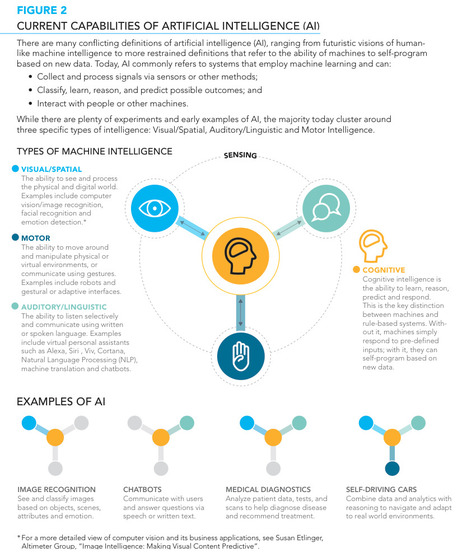This report lays out the current state of AI for business, describes primary and emerging use cases, and states the risks, opportunities and organizational considerations that businesses are facing. It concludes with recommendations for companies thinking about applying AI to their own organizations, and a look at some of the business, legal and technical trends that are likely to shape the future.
Key Findings
When it comes to use cases, narrow and clear is better than new and shiny. Some of the most promising uses of AI today are highly specialized and highly vertical — from farming, to self-driving cars, to predictive analytics and precision medicine. In many cases, the most successful deployments will identify buying signals and churn signals and automate complex processes.AI will become a forcing function for an organizational data strategy. AI learns from vast amounts of data. Clean, accessible data is the foundation upon which successful AI is built. This means that data availability and accessibility should be early considerations when determining where to build, and where not to build, AI into systems.Ultimately, the opportunity (and risk) of systems based on machine learning is in their ability to sense, communicate, learn, act and adapt over time, and to connect with other systems. It’s not just about devices that will play a song or order tickets to a concert.Governance, privacy, ethics, and trust are critical to the customer experience. Even with a relatively “narrow” AI, it’s important to understand that enabling machines to learn and act based on data and past experience has significant implications. It’s critical to scenario plan for AI deployments — not only for the legal and regulatory reasons, but to protect and enhance the customer experience.Via Farid Mheir



 Your new post is loading...
Your new post is loading...








WHY THIS IS IMPORTANT
The report provides one of the best diagram to explain where AI can be applied in businesses today.